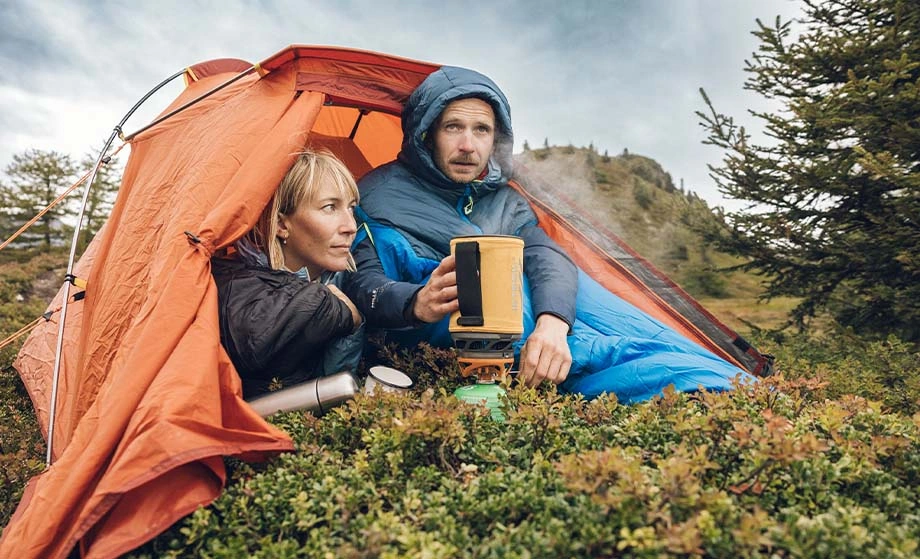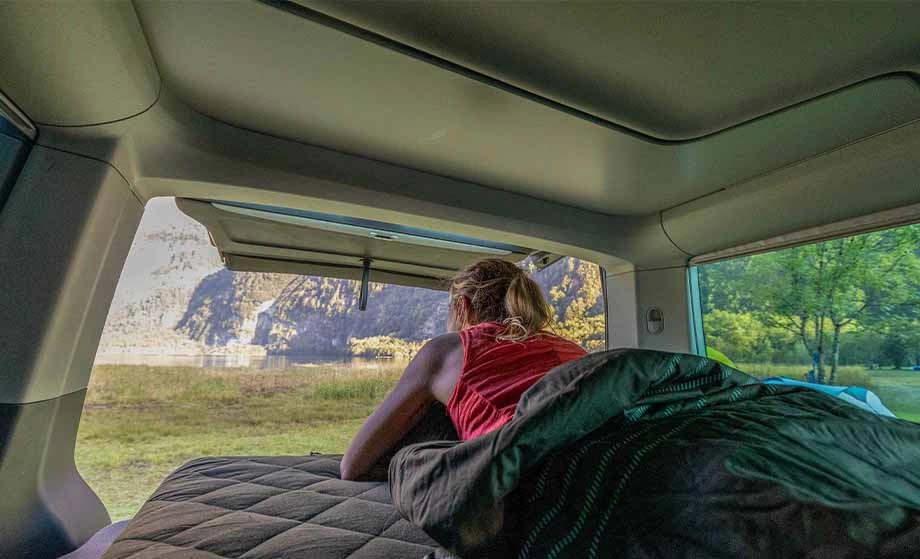Wild camping might sound like the ultimate freedom — just you, your tent, and the stars — but the rules can get tricky depending on where you are. Wild camping is banned outright in most European countries, with many restrictions.
But don’t worry — there are places where you can still roll out your sleeping bag and enjoy the wilderness legally. Let’s look closer at where it’s allowed, tolerated, or totally off-limits.
Sweden se
Legal — with conditions
Sweden is a wild camper’s dream. Thanks to the Allemansrätten (Everyman’s Right), you can pitch a tent just about anywhere in nature for a night or two, as long as you’re not on private land or near someone’s home (stay at least 150 m away). Fires are okay unless there’s a fire ban, and you’re expected to leave no trace. This freedom only works because people use it responsibly — so be cool, stay quiet, and clean up after yourself.

Millet
Wild camping in Sweden is generally excepted
Norway no
Legal — with similar rules
Norway has the same freedom-to-roam principle. You can camp in “utmark” (uncultivated land) and stay in one spot for up to 2 nights — longer if you’re deep in the wild and not bothering anyone. Keep a 150–200 m distance from the nearest house or cabin, and avoid farmland or fenced areas. Bonus tip: Head to Lofoten in summer for epic views and 24-hour daylight.
Finland, Estonia & Latvia fi, ee, lv
Legal — respect nature
These countries follow similar “right to roam” laws. You can pitch a tent in natural areas away from homes, farmland, and protected reserves. Fires may be restricted in dry seasons. When in doubt, check with locals or a tourist office — they’re often happy to help.
Romania ro
Tolerated — but unofficial
There’s no law banning wild camping in Romania, and most locals don’t mind if you set up a tent for a night. Stay respectful, especially on private land — asking first is polite (and intelligent). Avoid protected national parks, where rules may be stricter.
Poland pl
Legal — in designated zones
Since 2021, Poland has opened up hundreds of forest areas for wild camping under a special program. These “Nature Zones” are mapped out online, and you can stay up to 2 nights. Camping isn’t technically legal outside those areas, but enforcement is rare — keep a low profile and leave no trace.
Denmark dk
Strict — but there are options
Wild camping is only allowed in about 40 designated forests. You’re limited to one night, two tents, and no campers. On beaches or with a caravan? Expect a fine. It is not the best country to wing, but the legal spots are often lovely and peaceful.
Germany de
Mostly illegal — tiny loopholes
Pitching a tent in the wild is not allowed. However, a one-night bivy without a tent (think sleeping bag under the stars) is usually tolerated in remote spots. Car or van camping is also allowed in certain rest areas, for one night only. When in doubt, ask the landowner or local authorities.
Austria at
Generally, no. Wild camping is prohibited by law in most of Austria, especially in forested areas, national parks, and alpine regions. This includes pitching a tent or sleeping in a vehicle overnight outside of designated camping grounds.
🚫Strictest areas
Tyrol, Vorarlberg, and Salzburg: Wild camping is completely banned. Fines can be high (up to €500 or more).National parks and nature reserves: No-go zones. Austria takes nature protection seriously.
More tolerant areas
Styria and Lower Austria: In some remote, non-forested areas, authorities may turn a blind eye to discreet overnight stays — especially if you’re bivouacking (no tent, just a sleeping bag and mat). Carinthia and Upper Austria: Still technically illegal, but less heavily policed in isolated areas.
France fr
Very limited — with permission only
Wild camping is officially only allowed with the owner’s consent, and banned in most coastal, forested, or protected areas — especially national parks. Still, locals are often open to letting hikers camp on private land. Always ask, and avoid touristy areas where enforcement (and fines) are more likely.
Spain es
Mostly illegal — avoid tent camping
Despite what some guides say, wild camping in Spain is broadly prohibited, especially in national parks, on beaches, or near tourist zones. Most land is private, and even inland, it’s often rocky or thorny — not ideal tent terrain. However, campervans can usually park overnight in designated areas.

exped
Overnight in a campervan is permitted in designated areas in Spain
Portugal, Netherlands, Italy, Greece, Croatia, Hungary, Czechia, Slovakia, Bulgaria, Serbia
Strict no-go zones 🚫
These countries have cracked down hard on wild camping. Fines can be hefty, and parking a camper van overnight is restricted in many areas. Always use official campsites or ask locals for advice — they may point you to safe (and scenic) alternatives.
Bonus Tip
Before setting up anywhere, always check local regulations. What’s fine in one region might get you fined in another. And please, don’t share exact camping spots on social media — overexposure can damage fragile ecosystems.